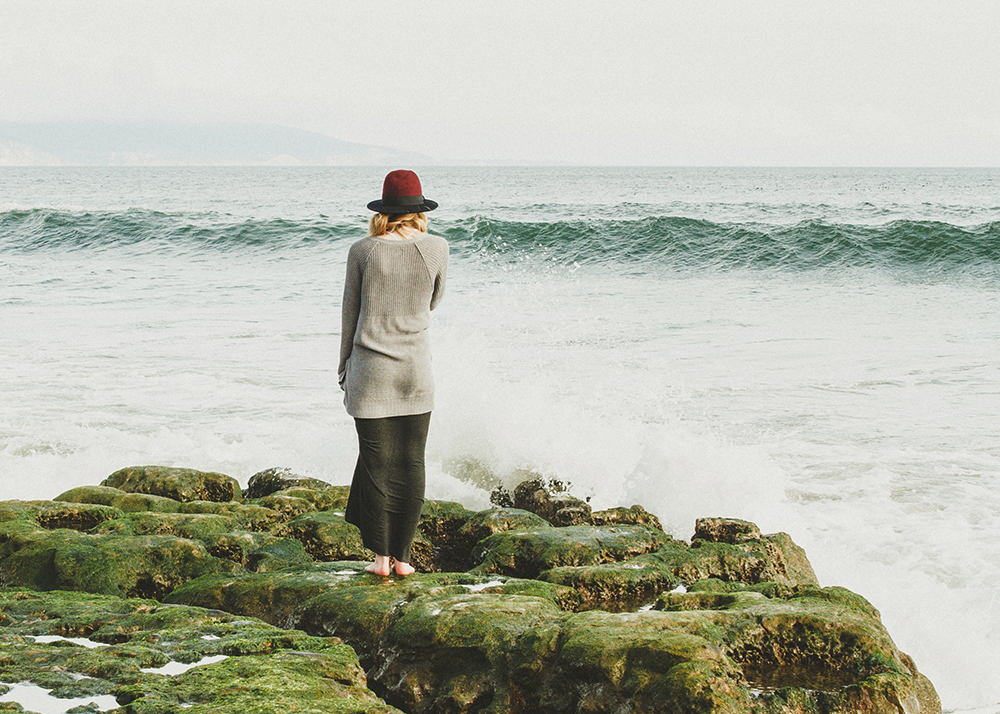There are two ways that we try to mitigate our guilt when it comes to our consumption of plastic packaging; the first is by recycling and the second is by buying in to biodegradable packaging that isn’t actually so. There are dire consequences to both of these, but an incredible breakthrough from scientists in Tel Aviv might just be the savior we’re looking for. After all, we need something if we’re to survive under the ever-growing mountain of plastic ruining our beautiful planet.

You may feel that you’re doing good when you recycle. Most of us do. But did you know that only roughly half of what we put in our recycling bins is actually recycled? And if we look at plastics specifically, the figure is an even more shocking less than 30%. Part of this comes from consumer confusion over which materials can and can’t be given a new lease of life. Other times it’s items that blow away in the wind while they’re sat on the street waiting to be collected, ending up storm drains and making their way out to sea. The intention is there, but nature dictates ultimate fate.
But back to recycling for a minute; it’s important to know that plastics can only ever be “down-cycled” into something of lesser quality. The structural complexities of plastics renders them very difficult to simply melt down and reform into brand new clear bottles. The clarity and texture are never the same after processing, so the best we can hope for is a park bench, a non-breathable polyester fleece jacket or other weird post-consumer-recycled-waste-based products such as dish cloths or packing peanuts.
Finally, in January 2018 China banned the import of recycled plastic out of concern for its own environment, so the world’s plastics are now flooding Southeast Asia—and the governments of Vietnam, Malaysia, Indonesia, and Thailand are quickly getting up in arms. If they don’t accept our plastics, what will happen next?
We have good intentions and wish things were different, sure, but unfortunately there are no two ways about it: disposable plastics are terribly wasteful. And we all know this, of course. This is why the concept of biodegradable plastics came into existence: plastics that would disintegrate, disappear and not pollute our land and seas like the archaic alternatives. Ideal, right? It’s important that we clarify what biodegradable plastics are. As I’ve touched upon previously, there are two types of biodegradable plastics. The first are those that are made of the same by-products of crude oil, but simply break down into smaller fragments quicker than others. These guys are bad. We all know how horrendous microplastics are; now so ubiquitous that they’re within all of us with goodness knows what long-term consequences. But the second type of biodegradable plastics are those made of plant-based materials that do truly degrade; things like plant cellulose or corn starch: from the earth and able to be returned to the earth. We like these.
There’s still some debate over the speed at which these degrade and how specific the conditions must be to encourage the process to take place in some instances and I do agree that they still keep us within the confines of the wasteful throwaway culture that we’ve found ourselves in. But, moving to a more sustainable economy on the planet as a whole requires a whole lotta baby steps, hence why I support discourse around anything pertaining to a sustainable middleground to get us there. We’ll do it, it just isn’t an overnight process, unfortunately.
Cue the latest findings coming at us from scientists in Israel. Combining two things dear to my heart (algae and bacteria), researchers from Tel Aviv University have been working on a process that forms bioplastic polymers from microorganisms that feast on seaweed. A tangible, organic material that can actually biodegrade and leaves behind no toxic by-products? I’m all ears.

The problem with a lot of bioplastics is that the resources needed to grow the plants that are later transformed into these various polymers are often costly things like fertile soil and water. We have enough issues with limited space that can be dedicated to arable land and droughts causing the spread of desertification that any alternative is widely-welcomed by futurists worldwide. The excellent thing about this new bioplastic polymer in question is that it doesn’t require all the soil and water. Instead, it comes from the sea.
The bacterium responsible for such wizardry is Haloferax mediterranei. Colonies of these organisms feed on multicellular seaweed (such as Ulva spp.) and produce a biopolymer known as polyhydroxyalkanoate (PHA). The research also indicates that there is some flexibility in terms of the carbohydrate sources able to be fermented by H. mediterranei, suggesting it’s fairly hardy nature and ability to be utilised in various marine environments around the globe, despite variety in algal species present.
With so many possibilities for commercial production and applications, I hope we see this process adopted by manufacturer’s around the world. As consumers, we have to put the work in to change our mindset to one where we don’t continue to plead ignorant to the magical black hole that most of us like to think our trash disappears to when we throw it away. There is no “away” though, only somewhere else on a planet with finite space. And until we get there as a collective, governments and corporations have an absolute responsibility to step up and implement more sustainable practices. This isn’t a bad place to start.
What are your experiences with biodegradable plastics? Are you striving for less waste in 2019 too?
Also by Kat: El Nino Likely For Early 2019—What That Means & Why You Should Care
Phone Killing Your Attention Span? How To Sustain Focus & Beat The Impulse
Get more like this—Subscribe to our daily inspirational newsletter for exclusive content!
__
